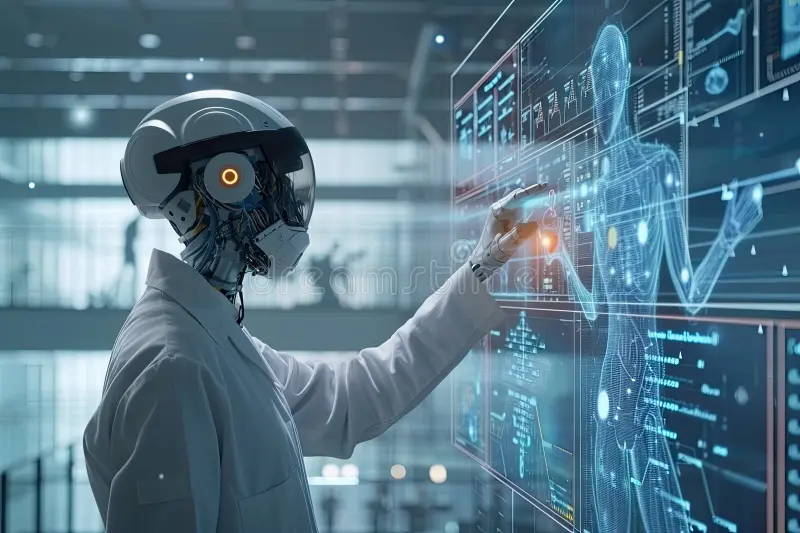Imagine going to the doctor, sneezing once, and before you even finish explaining that it’s just allergies, the computer next to your doc flashes a message: “Seasonal flu. Probability: 93.4%.” Well, welcome to the wild (but surprisingly accurate) world of AI in healthcare diagnosis.
This isn’t science fiction anymore. We’re living in an era where algorithms might just know your body better than your mom does.
So, What Is AI in Diagnosis Anyway?
AI in healthcare diagnosis is teaching a computer to do what your doctor does: analyze your symptoms, look at your test results, and figure out what’s wrong with you. But instead of coffee-fueled guesswork, the AI uses data. Like, a lot of data. Blood test results, imaging scans, patient histories, and even that weird rash photo you googled at 2 a.m.
Through machine learning and deep learning techniques, these systems identify patterns in the chaos of medical data that a human might miss. They don’t get tired. They don’t skip lunch. And they definitely don’t say “come back next week if it still hurts.”
MRI, X-Ray, and AI Walk Into a Hospital…
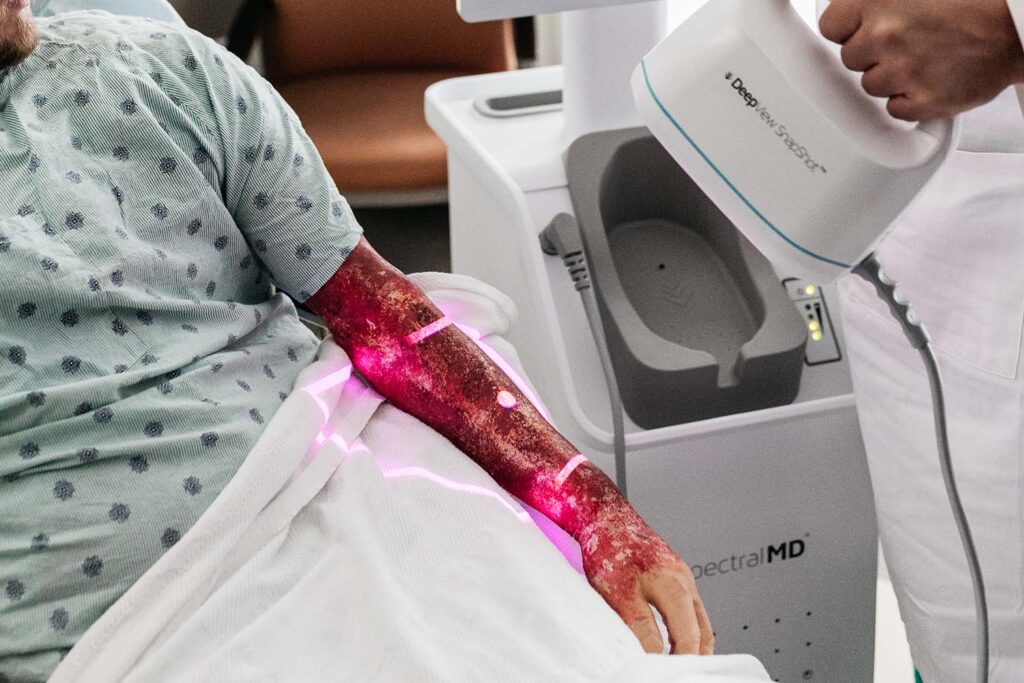
Imaging is where AI shines. Ever tried to read an X-ray? It’s like looking at a photocopy of a haunted house. But AI? It sees through the fog. It can detect anomalies in MRI, CT scans, and X-rays with a precision that’s turning radiologists into data nerds (and maybe a little nervous).
Take Google’s DeepMind, for example. Their AI can diagnose over 50 eye diseases from retinal scans better than some top doctors. That’s not just impressive; that’s sight-saving stuff.
In breast cancer detection, AI has reached (and in some tests, exceeded) the accuracy of expert radiologists. Now imagine that power available 24/7, across the globe, even in remote areas.
Your Smartwatch Is Judging Your Heart
Wearables aren’t just counting your steps anymore. With AI algorithms inside, your smartwatch might notice heart irregularities before you feel them. Apple Watches, for example, can flag atrial fibrillation. It’s like having a mini cardiologist on your wrist, minus the white coat and the judgmental questions about your diet.
These wearables send data to AI platforms that analyze your heartbeat, sleep patterns, blood oxygen levels, and more. Early warning systems like these could be game-changers for chronic illnesses.
AI in Healthcare Diagnosis: Diagnosing Rare Diseases — aka The Sherlock Holmes of Medicine
One of AI’s biggest wins? Rare diseases. These conditions often take years to diagnose because symptoms are subtle or mimic other more common illnesses. But feed enough data into the system, and the AI can narrow down possibilities with shocking speed.
There’s even an AI tool called Face2Gene that analyzes facial features to help diagnose genetic disorders. Yep, it reads your face. (Don’t worry, it’s not judging your selfies.)
From Triage to Treatment Plans
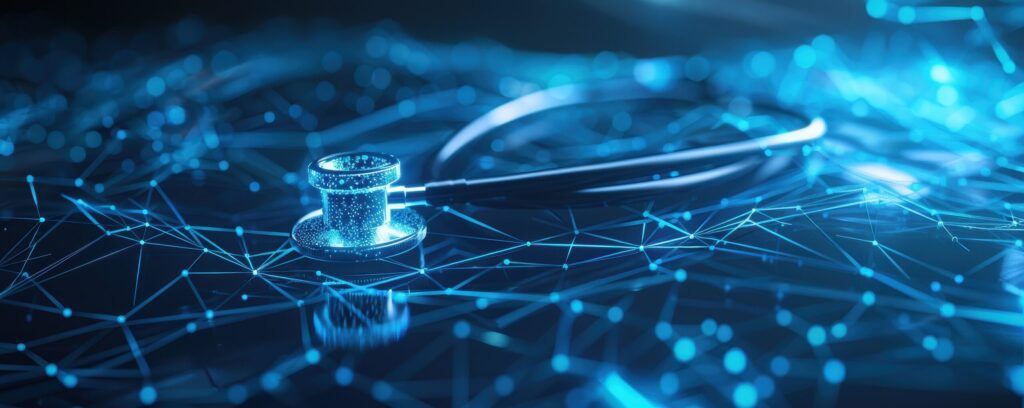
Some AI systems can even help prioritize which patients need attention first (triage), especially in emergency settings. Others assist in building treatment plans, suggesting the most effective medication based on your unique genetic makeup and medical history.
This is where things get personal, literally. Precision medicine is being turbocharged by AI, giving doctors the ability to say, “This drug will work for you” with a confidence they never had before.
But Wait, Is AI Replacing Doctors?
Short answer: Nope.
Longer answer: Not even close. AI is like the super intern who does all the heavy lifting with data, but the doctor still runs the show. Human judgment, empathy, and the ability to have a real conversation about your fears and concerns? That’s all still very much human territory.
Plus, someone has to explain that, no, Googling your symptoms is not a valid second opinion.
What Could Go Wrong? (Spoiler: A Few Things)
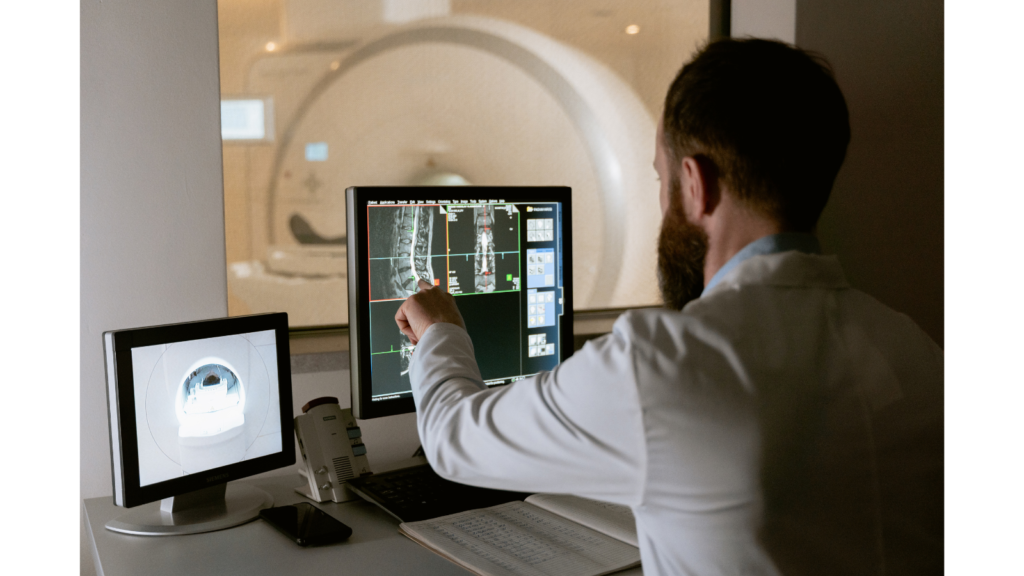
Of course, AI isn’t flawless. Garbage in, garbage out. If the training data is biased or incomplete, the AI can make errors. There’s also the risk of over-reliance on tech, where clinicians might trust a machine over their instincts.
Then there’s the data privacy thing. Your health records are super sensitive. So having them processed by algorithms needs heavy-duty security and clear regulations.
The Road Ahead
The future? Think AI that not only diagnoses but also predicts disease before symptoms even appear. A world where hospital visits are faster, diagnoses are more accurate, and rural communities get the same quality of
care as urban centers.
And maybe, just maybe, one day you’ll cough and your smart speaker says, “Bless you. I’ve booked a virtual appointment and updated your meds.”
Final Thoughts: AI with a Stethoscope
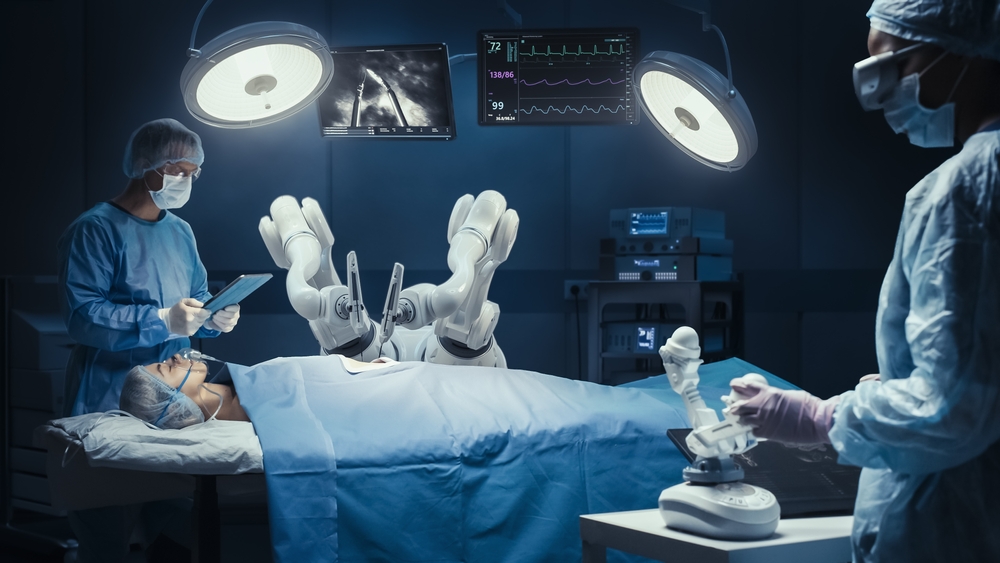
AI in healthcare diagnosis is not just a trend; it’s a transformation. It’s about using powerful tools to make medicine more efficient, accessible, and accurate. But at its core, it still relies on humans to guide it, correct it, and apply it with compassion.
So the next time your smartwatch buzzes with a health alert, don’t freak out. Just remember: it might be the smartest friend you’ve got and it only wants you to feel better.
Frequently Asked Questions (FAQ)
Q1: Is AI already being used in hospitals for diagnosis?
Yes, many hospitals around the world are already using AI tools to assist in diagnosing diseases, especially in radiology, pathology, and cardiology. AI helps speed up diagnoses and improve accuracy.
Q2: Can AI detect diseases better than doctors?
In some areas, like medical imaging, AI is as accurate, sometimes even more accurate, than human experts. But it’s not about replacing doctors; it’s about supporting them with better tools.
Q3: Is it safe to trust AI with my health data?
That depends on the platform and its security measures. Reputable AI systems follow strict regulations to protect patient data. Still, privacy concerns remain an important topic.
Q4: What kind of diseases can AI diagnose?
AI can assist in diagnosing a wide range of diseases, including cancers, eye diseases, heart conditions, neurological disorders, and even rare genetic syndromes.
Q5: Will AI ever replace doctors completely?
Very unlikely. AI is excellent with data, but it lacks empathy, moral judgment, and human connection—things that are essential in medicine. The future is collaboration, not replacement.
Q6: How can patients benefit from AI diagnosis?
Faster diagnosis, fewer errors, personalized treatment plans, and better access to quality care—especially in underserved areas. AI makes healthcare more efficient and patient-focused.
Q7: Are there any downsides to using AI in diagnosis?
Yes. Potential issues include data bias, false positives or negatives, lack of transparency in how AI decisions are made (the “black box” problem), and over-reliance on machines.
Q8: Can wearables help diagnose health problems?
Absolutely. Devices like smartwatches can track heart rhythms, sleep patterns, and more, alerting users to potential issues early. Combined with AI, they become powerful health tools.
Want more in-depth info? Check out our article on how machine learning is transforming diagnosis here
